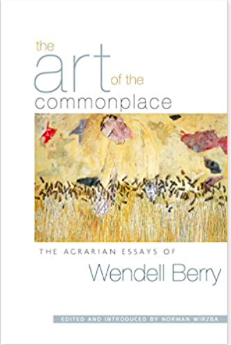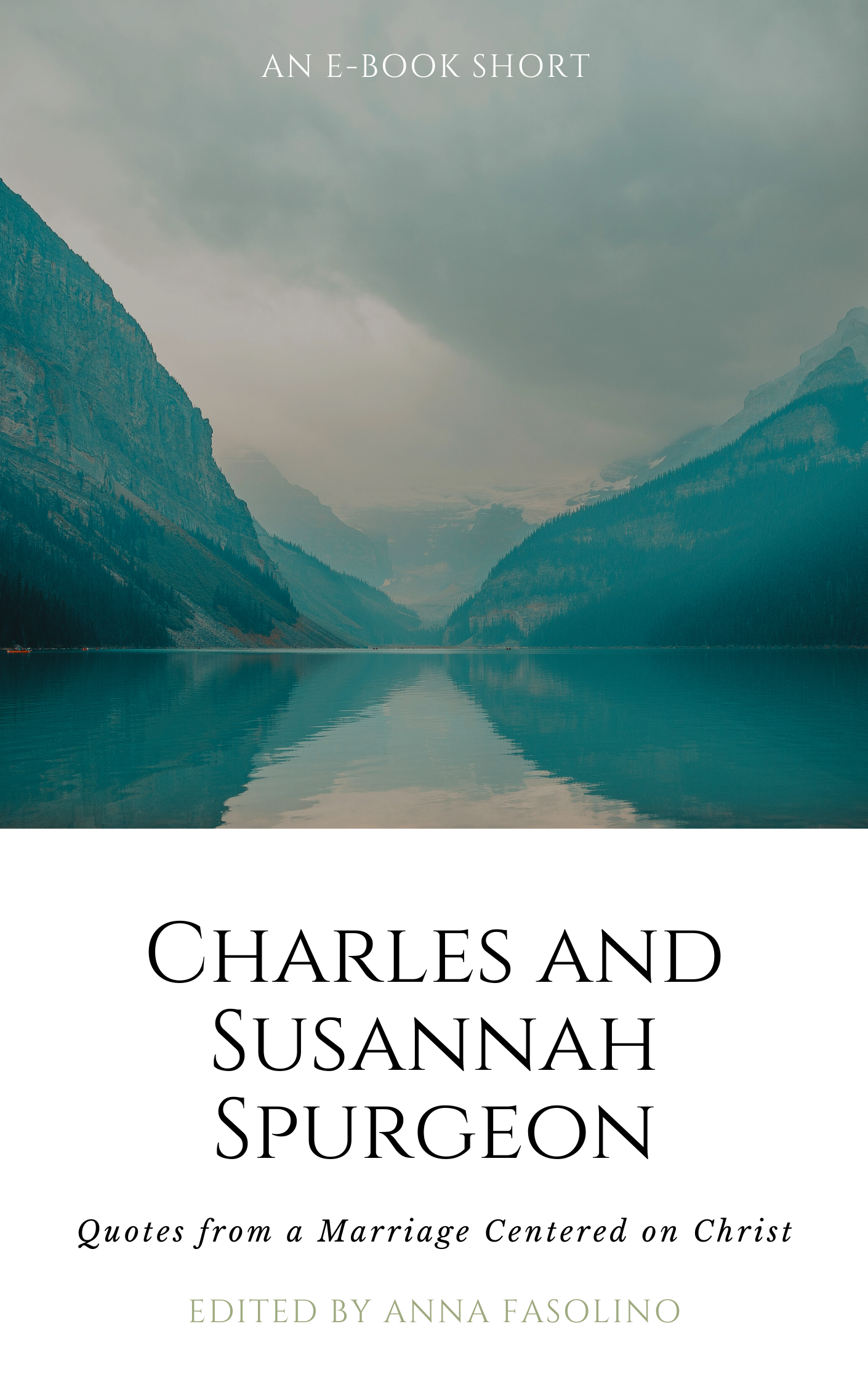A mini review of a collection of essays by Wendell Berry entitled, The Art of the Commonplace. Some of these are excerpted from the Unsettling of America, which I read last year.
Wendell Berry’s essays on agrarianism firmly root us in our communities. We do not stand or fall alone. We stand or fall along with the communities we have built or torn down, along with the ecosystems we have protected or vandalized, and along with the families to whom we have been faithful or unfaithful. This is the main theme of The Art of the Commonplace.
While Berry believes strongly in God as Creator and as love, and even acknowledges that we live in a fallen world, he doesn’t always write with this knowledge guiding his words. Bitterness creeps through as he scorns Christians who are too focused on heaven to be of good on earth. (Which I do not acknowledge as a possibility. If we are truly consumed by heaven and the hope of eternal life, we will serve here on earth FAR more unselfishly.)
The section of the collection of essays that focuses on religion is somewhat difficult to follow at times. I agree with Berry’s insistence that dualism is harmful. (We cannot despise material things and glorify spirit alone. We are made of both spirit and flesh.) But I disagree that Christianity needs to be “enlarged” to fit its role in the new age. Berry scorns the “very strange enterprise of “saving” the individual, isolated, and disembodied soul.” (For fairness, the sentence I just quoted needs to be read in context. But it’s evident that Berry prefers land stewardship to evangelism.)
Berry (rightly) sees the command to take dominion as our command to be stewards and guardians of earth, not rapacious abusers of all its resources. We can learn from his criticisms. Yet we must continue to tell the truth: Jesus is the ONLY way, truth, and life. (Not just one way among many. Sadly, Berry turns his nose up at missions to indigenous cultures he believes may already have the religion they need).
Wendell Berry is in many ways a prophet of the last generation. He spoke up for an almost lost way of life. But a uniquely Christian prophet he cannot be called. I do recommend reading this book, simply to gain perspective on America’s so-called “progress.” (And also to enjoy Berry’s way with words. I’ve fallen in love with the phrase, “art of the commonplace”!) I do not recommend following Berry’s theology down to its eventual end: universalism.
For a more definitely Christian take on environmentalism, check out my review of A Different Shade of Green.
Favorite Quotes from The Art of the Commonplace:
Wendell Berry on Gardening
“I can think of no better form of personal involvement in the cure of the environment than that of gardening. A person who is growing a garden, if he is growing it organically, is improving a piece of the world. He is producing something to eat, which makes him somewhat independent of the grocery business, but he is also enlarging, for himself, the meaning of food and the pleasure of eating. The food he grows will be fresher, more nutritious, less contaminated by poisons and preservatives and dyes than what he can buy at a store. He is reducing the trash problem; a garden is not a disposable container, and it will digest and reuse its own wastes. If he enjoys working in his garden, then he is less dependent on an automobile or a merchant for his pleasure. He is involving himself directly in the work of feeding people.
If you think I’m wandering off the subject, let me remind you that most of the vegetables necessary for a family of four can be grown on a plot of forty by sixty feet.”
Wendell Berry, “Think Little”
“A person who undertakes to grow a garden at home, by practices that will preserve rather than exploit the economy of the soil, has set his mind decisively against what is wrong with us. He is helping himself in a way that dignifies him and that is rich in meaning and pleasure. But he is doing something else that is more important: he is making vital contact with the soil and the weather on which his life depends. He will no longer look upon rain as an impediment of traffic, or upon the sun as a holiday decoration. And his sense of man’s dependence on the world will have grown precise enough, one would hope, to be politically clarifying and useful….
Amid the outcries for the liberation of this group or that, we will know that no person is free except in the freedom of other persons, and that man’s only real freedom is to know and faithfully occupy his place—a much humbler place than we have been taught to think—in the order of creation.”
Wendell Berry
Wendell Berry on Educational Freedom
“… A teacher in a public school ought to be free to exercise his or her freedom of speech in choosing what books to teach and in deciding what to say about them. (This, to my mind, would certainly include the right to teach that the Bible is the word of God and the right to teach that it is not.) But the families of a community surely must be allowed an equal freedom to determine the education of their children. How free are parents who have no choice but to turn their children over to the influence of whatever the public will prescribe or tolerate? They obviously are not free at all.
The only solution is trust between a community and its teachers, who will therefore teach as members of the community—a trust that in a time of community disintegration is perhaps not possible. And so the public presses its invasion deeper and deeper into community life under the justification of a freedom far too simply understood. It is now altogether possible for a teacher who is forbidden to teach the Bible to teach some other book that is not morally acceptable to the community, perhaps in order to improve the community by shocking or offending it. It is therefore possible that the future of community life in this country may depend on private schools and home schooling.”
Wendell Berry, The Art of the Commonplace
Wendell Berry on Respect for Others
“Respect, I think, always implies imagination—the ability to see one another, across our inevitable differences, as living souls.”
Wendell Berry, The Art of the Commonplace



 : a favorite place to walk when we can!
Once
: a favorite place to walk when we can!
Once 
![The first photos are of my parents’ sprawling rural Arkansas garden. The last is of my tiny little beds in the big city. Plants bring life to even the smallest corner!
I’ve been reading some beautiful fiction this year, and I just posted a review of a book by one of my favorite authors, Leif Enger. (https://therestfulhome.com/brave-young-handsome-review/ in your browser, or click on the link in my Instagram profile) If you don’t have time to read the book, though, here’s just a quote or two for your enjoyment:
🎼
“Death arrived easy as the train; [he] just climbed aboard, like the capable traveler he was.”
🛤️
On riding a horse: “You are a feeble and tenuous being; the only thing a horse wants from you is your absence.” 🐎 😄
#quotes #leifenger #amreading #gardens #gardening](https://scontent-atl3-1.cdninstagram.com/v/t39.30808-6/468657020_18342474787176025_4442629541396867851_n.jpg?_nc_cat=108&ccb=1-7&_nc_sid=18de74&_nc_ohc=DEja6UP2ct4Q7kNvgEYJxCM&_nc_zt=23&_nc_ht=scontent-atl3-1.cdninstagram.com&edm=ANo9K5cEAAAA&_nc_gid=AA4bBsvQ_JpqZXLUPUTpTC8&oh=00_AYCjI9LUx-cJxe6cu0n7H1Gounaz92aBlTrQacnKut8umg&oe=67567CAB)
















